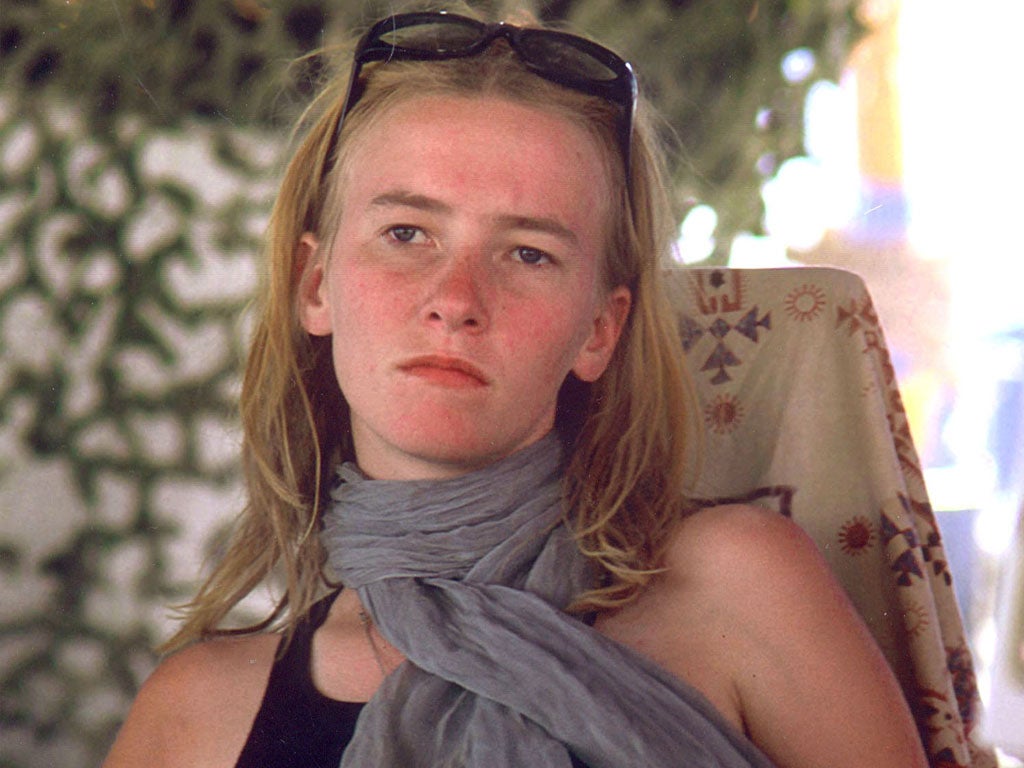Israel's inquiry into death of activist Rachel Corrie not credible, says US
Ambassador criticises investigation into death of Rachel Corrie as civil case verdict expected

Your support helps us to tell the story
From reproductive rights to climate change to Big Tech, The Independent is on the ground when the story is developing. Whether it's investigating the financials of Elon Musk's pro-Trump PAC or producing our latest documentary, 'The A Word', which shines a light on the American women fighting for reproductive rights, we know how important it is to parse out the facts from the messaging.
At such a critical moment in US history, we need reporters on the ground. Your donation allows us to keep sending journalists to speak to both sides of the story.
The Independent is trusted by Americans across the entire political spectrum. And unlike many other quality news outlets, we choose not to lock Americans out of our reporting and analysis with paywalls. We believe quality journalism should be available to everyone, paid for by those who can afford it.
Your support makes all the difference.Israel has failed to carry out the "thorough, credible and transparent investigation" it had promised into the death of American activist Rachel Corrie in Gaza nine years ago, the US ambassador in Tel Aviv has reiterated to her family.
The Haifa district court is expected to deliver a verdict next Tuesday in the civil action brought against the State of Israel by the bereaved family of Ms Corrie, who was crushed to death by a military bulldozer while part of a group seeking to prevent the destruction of Palestinian homes in the southern Gaza border town of Rafah.
US ambassador Dan Shapiro's comments, in a meeting with Ms Corrie's parents Craig and Cindy, and her sister Sarah, reflect earlier public stances of the US government. But the family said yesterday it had been "encouraged" that coming so soon before the hearing they indicated an "ongoing" demand by the US government for such an investigation irrespective of next week's verdict.
The family opened the civil suit in 2005, two years after Ms Corrie's death at the age of 23, when the military prosecutor closed the file on the case after an internal enquiry.
The suit charged that the Israeli military had been responsible for the International Solidarity Movement activist's death and failed to conduct a full and open investigation.
The state argued in response to the family's suit that Ms Corrie and her fellow activists should not have been in a military zone and that the driver of the D9 military bulldozer did not see her. Witnesses called by the plaintiffs, however, said that Ms Corrie, who was wearing an orange fluorescent jacket, was clearly visible before she was killed.
At a hearing in the court in 2010 Richard Purssell, a British activist in the pro-Palestinian ISM, described how he had watched in horror as Ms Corrie was dragged four metres by the bulldozer moving forward at a "fast walking pace".
The full investigation was promised in a telephone call to the then US President George W Bush by Ariel Sharon, who was Israeli Prime Minister at the time, in the immediate aftermath of Ms Corrie's death. But no action was taken against the bulldozer driver or any other military personnel present at the time.
The US embassy said yesterday it would not comment on what was said at a private meeting held by the ambassador. But his remarks appear to reaffirm the letter written to the family in 2004 by Lawrence Wilkerson, an aide to then Secretary of State, Colin Powell, saying that Israel had failed to carry out the "thorough, credible, and transparent" investigation promised by Mr Sharon.
Ms Corrie's sister, Sarah Simpson Corrie, said yesterday that the lack of such an investigation had caused a "mounting battle" for the family in bringing the civil suit. Saying that she continued to look to the US government to press the case for a transparent investigation, she added: "You can't really expect the family to resolve the issue of a diplomatic promise. That is a matter for the governments – our's and Israel's."
Join our commenting forum
Join thought-provoking conversations, follow other Independent readers and see their replies
Comments